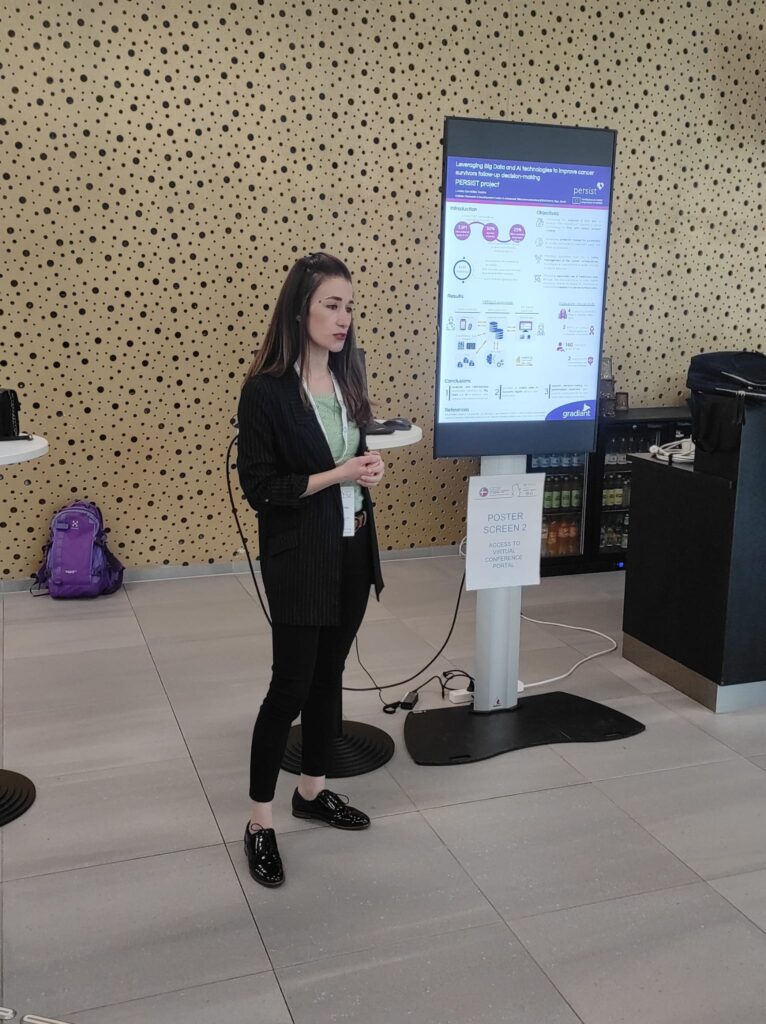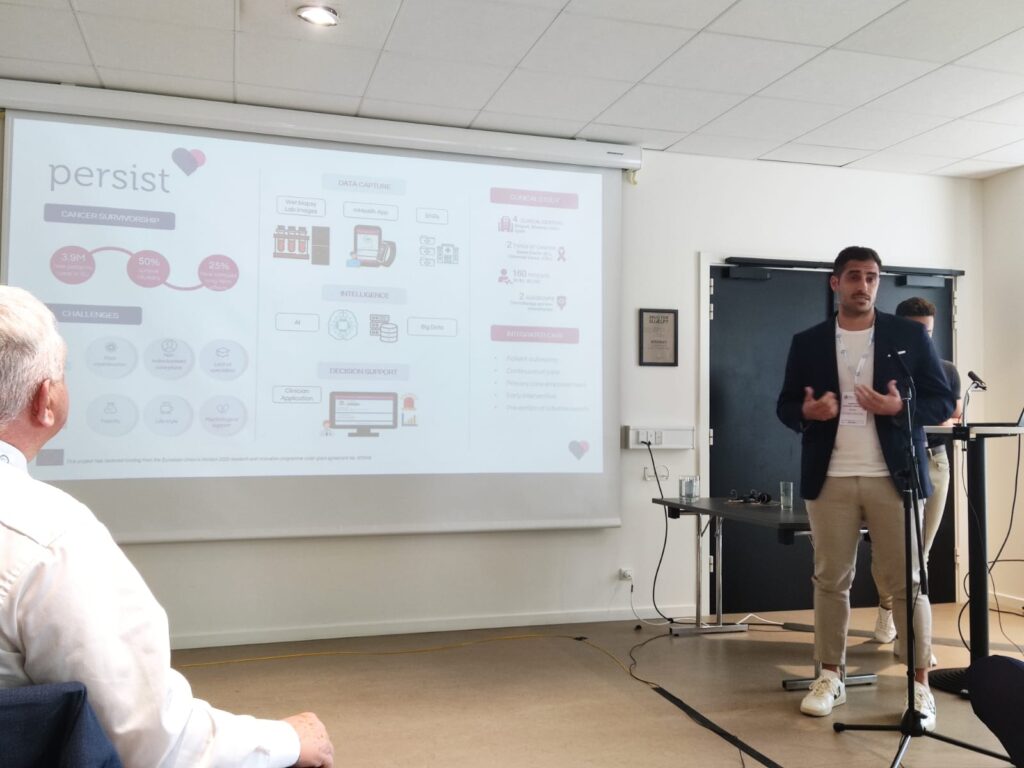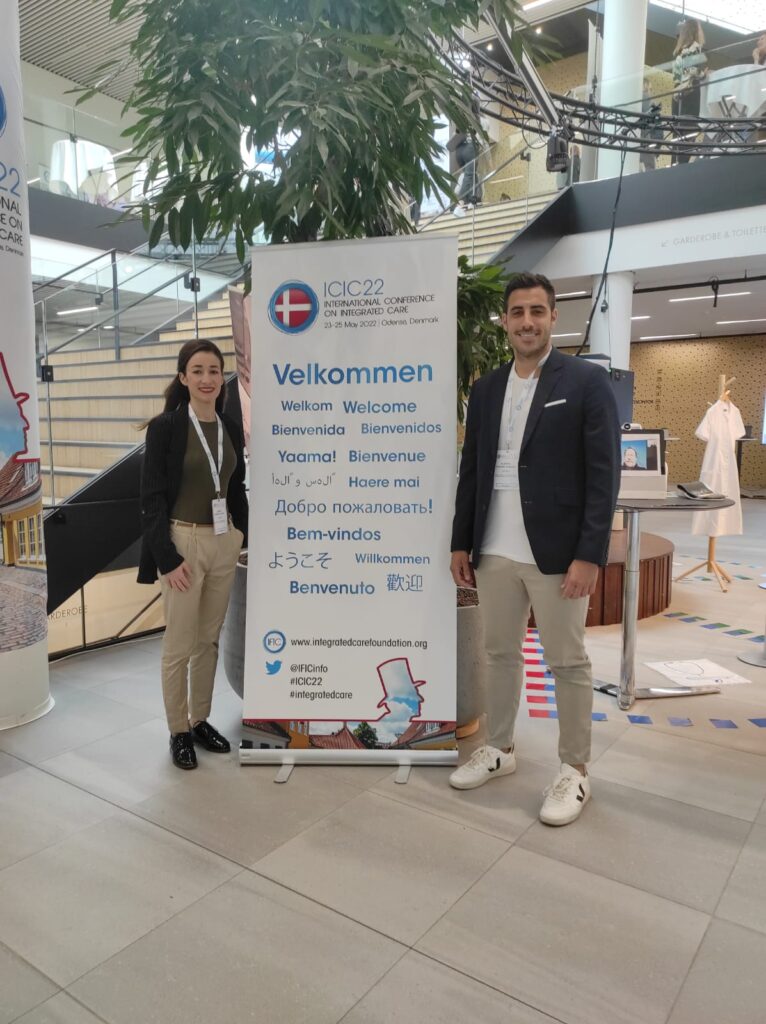
Leveraging Big Data and AI technologies to improve cancer survivors follow-up decision-making
Cancer survival has increased dramatically in recent years, with more than half of European cancer patients surviving at least 5 years after their first diagnosis. However, cancer survivors have complex needs that are generally not appropriatelly addressed in the guidelines’ recommendations used in follow-up after treatment, especially when it comes to improving the Quality of Life (QoL). Moreover, information collected in the Electronic Health Records (EHR) shows a biased view of the patients, since their voice is not routinely recorded. Tools that provide a holistic view of the cancer survivor are needed to improve the delivery of survivorship care.
The PERSIST H2020 project aims to improve the health outcomes and QoL of breast and colorectal cancer survivors by developing innovative tools based on Big Data and advanced data analytics to support the decision-making of physicians. It will provide evidence base and tools that take into account the whole person—all of one’s health and lifestyle conditions— that contribute to optimal follow-up and development of personalized survivorship care plans.
RESULTS
PERSIST is an open and flexible ecosystem composed by a central Big Data platform and several digital tools to support both patients and health providers. Interoperability is guaranteed by the CASIDE data model [1], which is based on the FHIR healthcare standard, and allows the structured collection, integration and aggregation of complex and fragmented data from EHR, patient sensed data, and PROMs (Patient Reported Outcome Measures). These data are analyzed through advanced data analysis and artificial intelligence algorithms that provide actionable recommendations for better decision-making. Patient trajectories learned from patient data enable practitioners a better appreciation of the risks at patient-specific level and help to prevent or timely identify side effects and the development of secondary conditions.
A multicenter clinical study is being held in 4 EU countries (Belgium, Latvia, Slovenia, and Spain) involving 160 survivors, 80 of breast cancer and 80 of colorectal cancer.
CONCLUSIONS
PERSIST provides a scalable and interoperable ecosystem powered by Big Data and AI to analyse data coming from different sources, facilitating an integrated view of survivors health. It will support decision-making and contribute to optimal treatment decisions with positive consequences for the QoL and the health status of survivors.
IMPLICATIONS FOR TRANSFERABILITY AND LIMITATIONS
The system’s modular design and interoperability based on the FHIR healthcare standard makes the components highly reusable. The AI algorithms are specific for breast and colon cancer, and are trained with data from the hospitals participating in the project, which may not be representative and generalizable to other settings.
BIOGRAPHY
Lorena González Castro is the Technical Manager of Smart Healthcare at GRADIANT and the Coordinator of the H2020 project PERSIST (Patients-centered survivorship care plan after cancer treatments based on Big Data and Artificial Intelligence technologies). Throughout her career, she has worked on numerous research projects in the field of eHealth. Her main lines of research focus on the development of AI-based Clinical Decision Support Systems (CDSS) and healthcare data analytics.
[1] González-Castro L, Cal-González VM, Del Fiol G, López-Nores M. CASIDE: A data model for interoperable cancer survivorship information based on FHIR. Journal of biomedical informatics. 2021 Dec 1;124:103953.DIGITAL POSTER
More information about the International Conference On Integrated Care (23-25.05.2022) find HERE.





